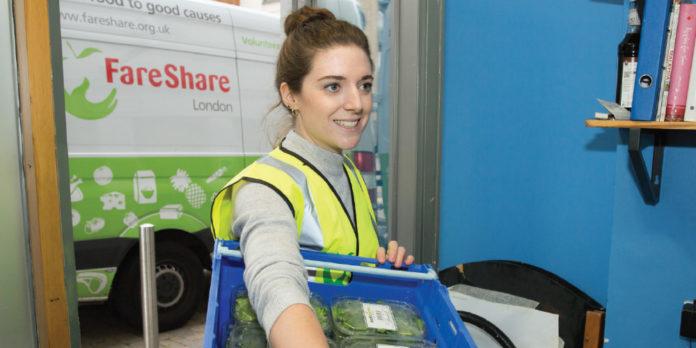Sustainability is a hotly debated topic, with 90% of foodservice customers claiming that it is important to their business. However, it is not just one challenge and so there is no single straightforward solution.
Many factors affect how sustainable a business is, from responsible sourcing and community engagement to waste reduction and efficient energy consumption. Therefore, it is vital the wholesale sector takes notice and works in partnership to identify the opportunities for change.
For many organisations, a sustainability policy is no longer a ‘nice to have’ – it is an essential and crucial part of running a future-proofed and successful business.
In terms of staffing, it is predicted that by 2025, 75% of the global workforce will be made up of millennials. The most sustainability-conscious generation, they expect businesses to help solve today’s sustainability and social issues. By finding out what matters to your employees – whether they are concerned by causes that are close to home or worried about some of the wider global challenges – businesses may find it easier to attract and retain talent if they can address issues that are important to them.
That is why at Bidfood, we recently conducted a corporate social responsibility survey to find out what challenges our customers, employees and foodservice businesses are motivated by. An important finding was that 65% of employees said sustainability is important to them because they want a better future for their family, and 51% said that they want to have a positive impact on the environment.
In addition to this, our survey found that 54% of foodservice businesses want to focus on food waste. In the UK, 18-20m tonnes of food is unused every year, and more than half this waste occurs in the food industry. Much of this food is fit for consumption and by building relationships with professional bodies, surplus food can be redistributed to frontline charities including homeless shelters, soup kitchens and foodbanks. While it is often impractical for wholesalers to directly donate products to these types of local charities, organisations such as FareShare can help to combat the logistical challenges.
So far, this approach has helped us donate more than 100,000 meals to feed people in need.
Collaboration is key
Operating a sustainable supply chain makes sense, not only ethically but commercially, too, as it enables wholesalers to build better relationships with suppliers and communities. However, as well as teaming up with industry associations and bodies, we must learn from those sectors and organisations making great strides towards creating a sustainable future.
Collaborative thinking can help us all drive progress. For wholesalers, it is important to remember that the sustainability challenges we face are not limited to a specific sector. With this in mind, the Plate2planet initiative, powered by Bidfood, brings various foodservice organisations together to share experiences, ideas, news and best practice in sustainability. It offers how-to guides, inspiring case studies, regulatory guidance, template materials and handy tools.
This online resource is brought to life through Plate2planet Live, our flagship sustainability summit, which provides a platform for our partners, stakeholders and the wider industry to explore the challenges facing our industry.
While sustainability may seem like an all-encompassing issue for the industry to tackle, small steps, sharing successes and working collaboratively will ultimately achieve great change.
Heather Angus is director of HR and sustainability at Bidfood.








